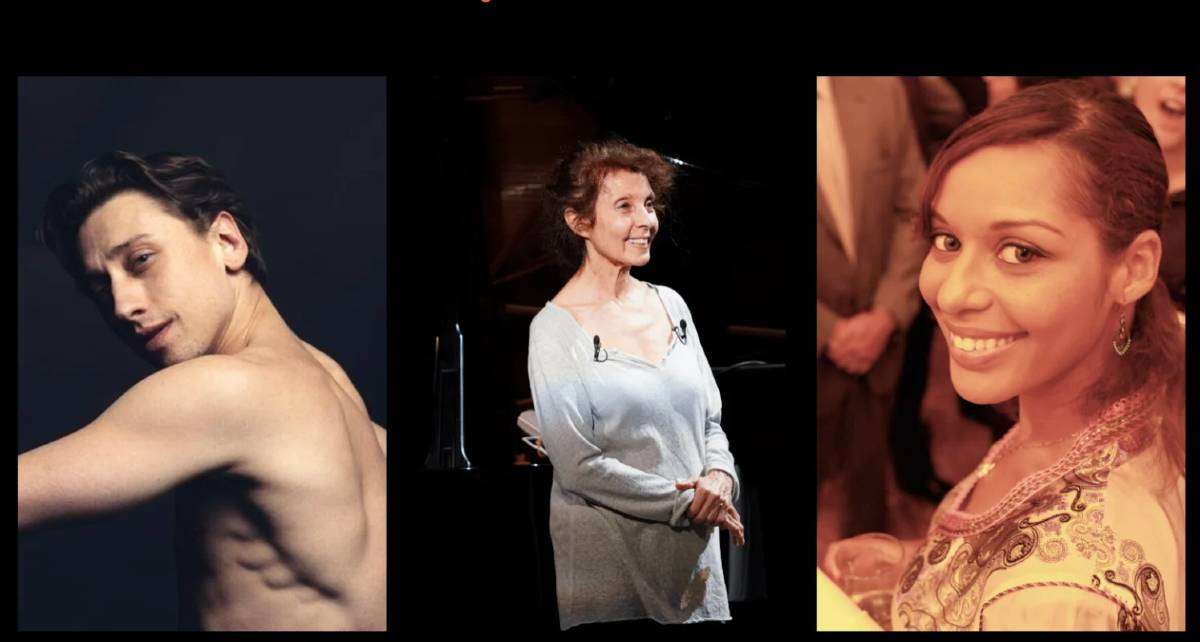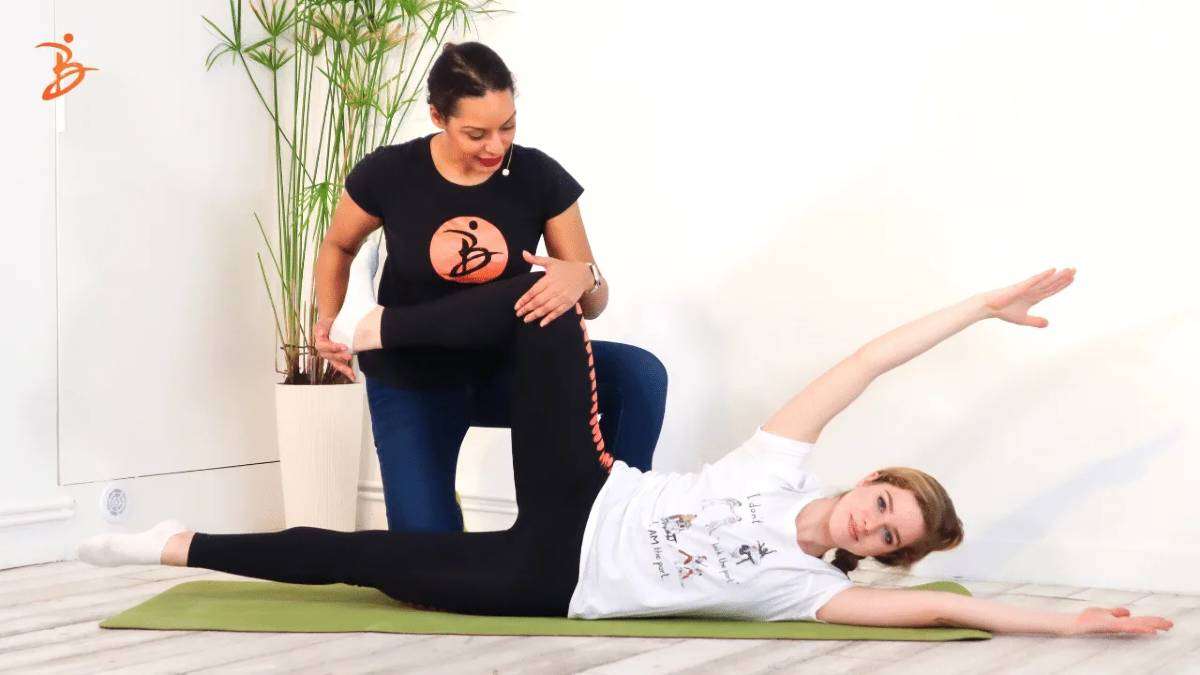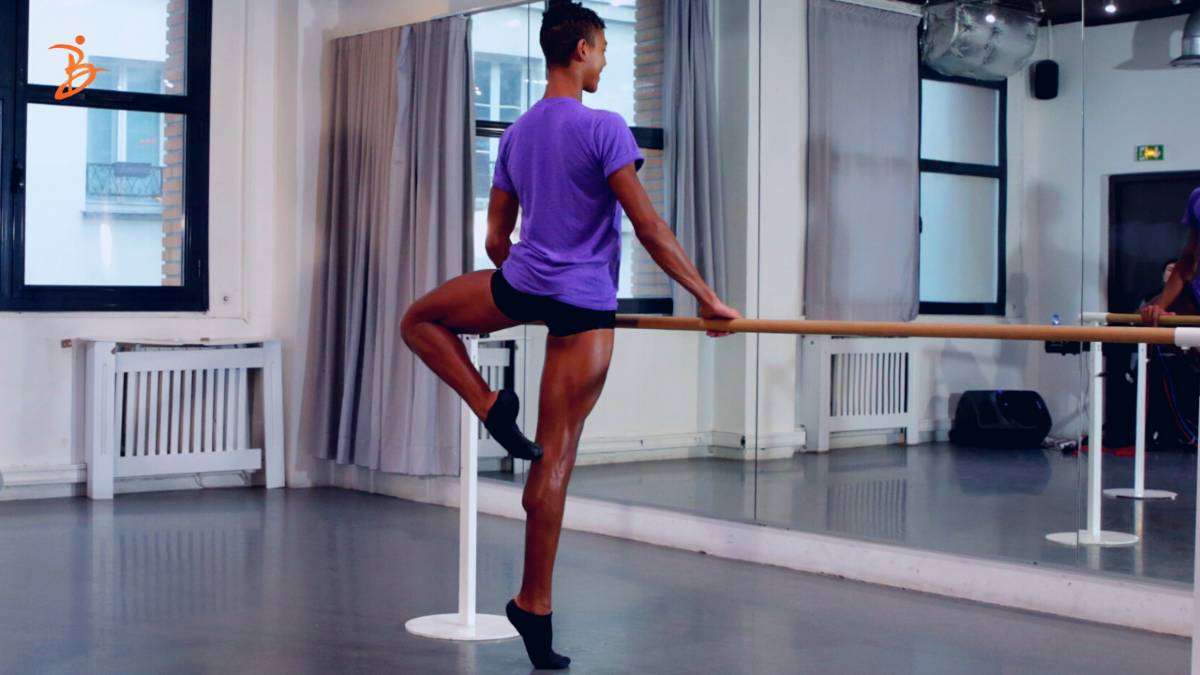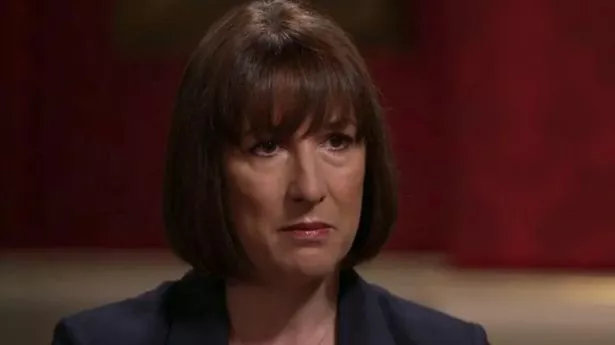A ballet dancer needs to train most days or their body knows it and it can affect their performance. But, as we have learnt with the COVID19 pandemic, not everyone is able to take the classes they want to take or visit the Ballet training schools they need to attend.
Now, thanks to modern technology, and thanks to Ondine D, missing a training class no longer has to be a problem. Ondine D has launched an online platform for dancers called Core de ballet which provides over 900 videos, information, guidance and advice, all supplied by professional and qualified dancers.
The aim of Core de ballet is to provide dancers with a platform which can become part of their daily routine and provide them with an important tool to help them become even better at what they do. With so much information, and professional help, it is fast gaining a reputation for helping those dancers that want to succeed.
We decided to sit down with the founder of Core de ballet and learn more, this is what they had to say.
First of all, please introduce yourself.
My name is Ondine. I go by ‘Ondine D.’ I lived in the UAE for almost ten years and it’s customary there to be called by your first name in a business environment.
You have launched a service and website for pro dancers called Core de ballet, but first of all let’s learn more about you. At what age were you when you became interested in dancing?
I started dancing at 3yo, I grew up in a family of amateur dancers: my mum, my dad, my brother all took dance lessons at some point in their life. But my mum is the only one who stuck to it and she’s still dancing now at 70+.
What age would you say is the best age for someone to start taking dancing lessons to have a career in Ballet?
Most people will say that we need to start at a young age because it requires so many years of training. I think the truth is a bit less straightforward. If you find your passion at a young age, then go for it! But sometimes we discover it when we are teenagers and we can hear some discouraging talk that it’s too late, especially for girls. From an anatomy standpoint, starting out as a teenager can be an advantage: you are strong enough and your neurological system is developed enough to learn properly quickly. In my experience, I have seen quite a few young dancers who had taken inefficient movement habits because they were not strong enough yet to do what they were asked to do. Unlearning inefficient habits is a difficult and mentally and physically exhausting tasks. So, I would say as soon as you find out that you love ballet, then go for it, and don’t listen to people who are telling you it’s impossible. It will be difficult if you start after you’re 13 but not impossible, there are many examples of such late starters, some more famous than others but all have or had a great career: Misty Copeland, David Zurak, Martha Graham, started late by most standards.

Ashley Banjo from Diversity once said that everyone can be taught to dance, what are your thoughts on that?
I agree 200%, almost everyone dances as a child if we turn music on. It’s as natural as smiling to familiar faces. Dancing, like any skill, can be taught to anyone, and anyone can be a decent dancer with practice and dedication.
Why did you decide to launch Core de ballet and who is it aimed at?
I decided to launch Core de ballet as I was travelling a lot at some point and it was not always possible for me to find ballet classes. I started talking to some pro dancers friends and realised that they also had the problem during long summer breaks or when they were travelling for a gala.
Before settling for Core de ballet I wanted to include the name “café”, I think one of my first idea was “ballet nuts café” as a pun because dancers often have a bag of nuts in their bag for an afternoon snack. This idea of a meeting point, a gathering place was important to me.
And very quickly I started thinking about a media platform where dancers could find the answers to all their questions. As a kid I was fascinated by the encyclopaedia, I think it shows here. I wanted to go beyond just providing ballet classes, Pilates has taught me so much about how the body actually moves, my ballet technique improved suddenly even though I was approaching 30, and as a certified mental coach and I could see some potential to support the growth of the ballet world. I wanted to create the platform I would have dreamed to have when I was a kid. I started interviewing my pro dancer friends, identifying what could help them have a longer and happier career and that was the genesis of Core de ballet. I started sketching prototypes and business plans during my time off work. I remember taking holidays just to work on planning how Core de ballet could scale and evolve. One day I decided that it was time to decide to quit my job and go full time or shove the plans in a drawer. I booked a plane ticket to see my friend Roxane Stojanov dance in Rubies at Paris Opera and told myself that I’ll know what to do depending on how I feel during this trip. Those three days in Paris were magical, I felt I was making the right decision, I came back to Abu Dhabi, resigned and one month later I was setting up Core de ballet from scratch. It was a bold move!

You say that Core de Ballet helps people to become a well-rounded artist-dancer through Videos on Demand and Streaming programs, Live Masterclasses and Online Magazine, can you give me some examples of how you can help people?
As a ballet student you can get access to “Questions and Answers” where a certified ballet teacher answers questions they are often asked in class, they take the time to deep dive into the meaning of their answer, provide a couple of different cues and exercises.
As a pro dancer, maybe you can follow the coaching of a Repertoire role by a Principal dancer who has danced the role in their career. In their coaching, they go beyond explaining the steps one by one, they share with us the meaning of the movements, to ensure you become the part on stage. I remember Florence Clerc, Paris Opera Principal dancer, coaching Giselle variation and asking the dancer “what are you telling him here?” to give sense and artistry to what could be seen as a simple port de bras. This is the detailed level of instruction you get at Core de ballet.
My favourite part is the series of mental coaching videos because it is under looked in the ballet world. And we all know that in high-pressure environment mental preparedness can be more important than physical preparedness. You can learn to be set goals and achieve them, gain more confidence, remain focus on excellence and avoid distractions. All those skills enable you to experience life at a different level and express more emotions in your dance.
We have started a new series with Wiener Staatsballett Principal dancer, Denys Cherevychko, where he shares with our viewers his experience and his views on what it takes to be a professional dancer. The program of what he wants to talk about is rich and varied, showing the depth and breadth of the skills and experience required, in other words to be a well-rounded artist.
Are you saying that Core de ballet can replace dance teachers?
No, never! First of all, even for the classes distributed on Core de ballet, dance teachers are the creators of their classes so we are not replacing any teacher, we work with them. Dance teachers are essential and we value them so much that’ Core de ballet distributes royalties to the artist-creators based on viewing ratings.
Beyond that, we believe that dance remains primarily taught in-person, there needs to be tailored, supervised instruction. It’s a physical activity, there are risks associated with it. It’s also an artistic endeavour and a instructor is key to guiding you and mentoring you based on your individuality. Core de ballet aims at supplementing this instruction. Sometimes, as teachers, we don’t have time to go in depth because we have another class to teach right after, or we get ask the same thing quite often. It is frustrating not to answer all questions as we’d like to, and that’s where Core de ballet can help a teacher, not replace the teacher. If you know the answer is developed on Core de ballet, you can point your students towards it and then tailor made the remainder of their questions at the next class. It’s much more efficient. It’s like recommending to read a brushstroke technique book before the start of a semester long painting training program really.

Injuries is one of the major problems in a dancer’s career, can your platform help people to understand how they can reduce the chances of getting an injury?
Yes, we are already providing modules created by Paul Thornley and Victoria Roper and we got lots of positive feedback on how valuable their information was at understanding how our body access and create movement, and making sense of contradicting information out there. And the entire platform is geared towards sharpening your critical thinking skills, which will be essential to staying up to date with the latest science to avoid injuries.
You have more than 900 videos on your platform, can you give me some examples of the type of videos you have available?
The range is very vast, there’s something for anytime of the day really. As you wake up you can follow along a 25 minutes conditioning class and improve your technique by taking your mind off of ‘ballet mode’, then you move on to eating your breakfast while watching a quick “Question & Answer” on how to have deeper cambrés. If you commute in the morning, you can enjoy the interview of an artist working in the dance world. I love re-watching Jessica Xuan, the winner of the Varna IBC 2018 gold medal, she’s such a funny and uplifting person. Then of course, if you don’t have access to in-person training you can take a follow-along dance class from where you are. We have viewers using them at home, during their travels, or in a dance studio as additional self-taught classes. In the evening, you could also listen to our Masterclasses because we break them down in sections of no more than 10 minutes. I personally enjoyed “When dance meets music”, about understanding the relationship between dance and music, the most. And during the weekend you can watch the Repertoire coaching sessions to prepare for a role, an audition, a competition or just to be ready when your time comes. We currently have Giselle Act 1 taught by Florence Clerc and Ali Act 2 taught by Irek Mukhamedov, and there are plenty more coming up.
What experience do the people have who are part of Core de ballet?
We are focusing on quality instructions so our partners are all hand-picked to ensure they have the necessary background, experience and qualifications, and share our values. Pilates is taught by certified instructors who are current with their CECs, nutrition by sport dieticians, mental coaching by qualified coaches, ballet by experienced certified teachers, Repertoire by Principal dancers who have danced the role.
I think during the pandemic we have all seen lots of people declaring themselves as instructors, but being a practitioner is not the same as teaching, and especially online teaching requires to think ahead which exercise to share. I know I often decide not to choose such and such Pilates exercise for a Program, even if I know it’s extremely efficient but I don’t want unsupervised people to do it.
I see that you offer live classes, can you tell me more about them?
This section was developed during the pandemic to support dancers who suddenly could not train in studios and to support some teachers who did not know how to set up online classes. We have quickly pivoted towards offering Masterclasses/Webinars as the demand for live online dance or Pilates classes is fading.
In the future I think we will continue to offer live coaching sessions, career management training, Webinars, Masterclasses and Q&As with experts. It’s a format that’s much appreciated by our viewers: they can watch a “theory” Masterclass on Core de ballet, then sign up for a live Webinar or Q&A session and get to ask their questions to the expert live and they can re-watch the Webinar on Core de ballet at their own time for a refresher.
I know that you help pro dancers to become better dancers, but is your platform also useful for those people who are training to become a dancer?
Absolutely, we actually have a lot of viewers that are dancers in training. The earlier you broaden your horizon and the most successful you can become.
Dance is a very demanding profession, and Core de ballet wants to help all aspiring dancers to have an opportunity to be taught the skills and strategies for success. Once the knowledge is out there for all, it’s up to the individual to apply themselves. As such, we strongly believe that one needs to behave and think like the person they aspire to be. We are not talking about “faking it until you make it”, we are talking about asking yourself “what would a pro dancer do in this situation?” and do the same. When you’re studying to become a dancer, act like a successful pro dancer already: embrace their work ethic and study some of the same resources, the transition from student to active employee will be smoother and more natural.
Core de ballet is also useful for amateur dancers who are not planning to become professional dancer, we have a subscription plan that covers only ballet, floor barre and conditioning classes that is very popular among intermediate and advanced level amateur dancers.
And a lot of balletomanes (ballet lovers) appreciate the quality of the interviews, the coaching sessions and the insight about what it takes to be a dancer.
What would you say Core de ballet biggest selling point is?
Core de ballet offers a complete offering to support the growth and longevity of dancers, not just ballet and conditioning. We strongly believe that great dancers are not reduced to people who can do X numbers of turns or jump very high. Great dancers are sensitive, curious, intelligent human beings who want to share with the rest of the society through their favourite mean of communication: musically choregraphed movement. You can’t touch the heart and soul of your audience with an empty movement.

We have just gone through the COVID19 pandemic, and in some countries, they are still going through it. Many dancers have been out of work and they have struggled with their mental health, does your site tackle this issue and if not, do you intend to add a section to help people who have struggled with their mental health due to being off the stage?
Our partner, Stephanie Bel-lahsen-Duperret, an Olympic coach and mental coach, prepared a masterclass on how to remain motivated in this kind of situation. We have received a lot of positive feedback from dancers who said it helped them remain focused and be ready when audition resumed. Ross Ridenoure, a Master NLP Practitioner and Instructor, is preparing a series of masterclasses on how to deliberately use your mind to achieve your goals. Those are all tools and strategies that can help dancers cope with the situation. Core de ballet would love to develop a section on mental health, we have just not yet found the right partner for that.
Also, if anyone feel like they are really struggling with the current situation, I strongly recommend that they get in-person help from a qualified practitioner. It is not a sign of weakness to ask for help, it is actually quite the opposite, it shows that you care and want to regain control over your life.
For more information on Core de ballet, please visit https://coredeballet.com/


